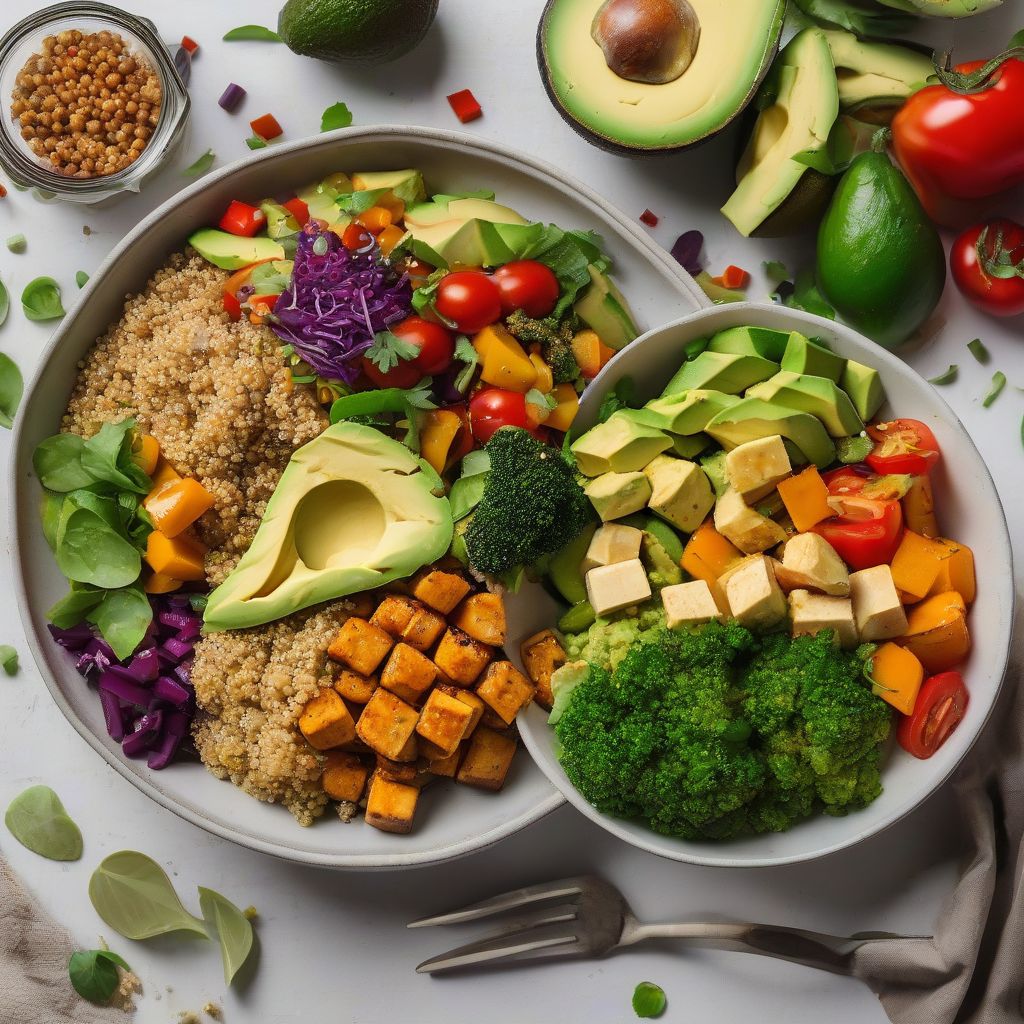Have you ever woken up from a dream, heart pounding with the realization that you were surrounded by vibrant fruits, vegetables, and a sense of incredible energy? While that might sound like a scene from a health guru’s vision board, it reflects the growing interest in plant-based eating. Switching to a plant-based diet can feel overwhelming, like navigating a jungle of unfamiliar ingredients and recipes. But I’m here to tell you, embarking on this journey doesn’t require an all-or-nothing leap.
As a nutritionist and meal-prep coach, I’ve helped countless people embrace a plant-based lifestyle with ease and enjoyment. This guide will equip you with the knowledge and tools to transition smoothly, answering your questions and empowering you to thrive on a plant-based diet.
Why Choose a Plant-Based Diet?
Before diving into the “how,” understanding the “why” can be incredibly motivating.
Benefits Backed by Science
Studies show that plant-based diets are linked to:
- Reduced Risk of Chronic Diseases: Heart disease, type 2 diabetes, and certain cancers often stem from diets high in processed foods and animal products. Plant-based diets are naturally lower in these and rich in protective nutrients.
- Weight Management: Plant foods are often lower in calories and higher in fiber, keeping you feeling fuller for longer and aiding in weight control.
- Increased Energy Levels: A diet rich in fruits, vegetables, and whole grains provides sustained energy throughout the day, banishing those afternoon slumps.
- Environmental Sustainability: Plant-based diets have a significantly lower environmental footprint compared to diets heavy in animal products, contributing to a healthier planet.
Beyond the Plate
Beyond the personal health benefits, adopting a plant-based diet aligns with a compassionate and sustainable lifestyle, reducing animal consumption and promoting ethical food choices.
 Plant-Based Meal
Plant-Based Meal
Getting Started: Simple Steps for Success
Transitioning to a plant-based diet doesn’t have to be drastic. These gradual steps make the process manageable and enjoyable:
1. Crowd Out with Plants
Instead of focusing on restrictions, start by adding more plant-based foods to your plate. Aim to fill half your plate with vegetables at each meal. Experiment with new grains like quinoa, farro, or freekeh.
Expert Tip: “Think of meat as a side dish or flavor enhancer, not the center of your meal,” says Registered Dietitian, [Name of Expert], author of [Name of Book].
2. Explore Plant-Based Protein Sources
Incorporate a variety of protein sources like:
- Legumes: Lentils, chickpeas, black beans, and kidney beans are versatile and packed with protein and fiber.
- Tofu and Tempeh: These soy-based products are complete protein sources and can be used in countless dishes.
- Nuts and Seeds: Almonds, walnuts, chia seeds, and flaxseeds offer protein, healthy fats, and essential nutrients.
3. Plan Your Meals
Planning is key to staying on track and avoiding decision fatigue.
- Weekly Meal Prep: Devote a few hours each week to cook grains, chop vegetables, and prepare some staple meals.
- Batch Cooking: Double recipes and freeze leftovers for quick and healthy meals.
Resource: Download my free plant-based meal planning template on my website!
4. Read Food Labels Carefully
Become a savvy label reader. Look for hidden animal products like gelatin, whey, or casein. Choose whole-food options whenever possible.
5. Find Your Tribe
Connect with others embracing a plant-based lifestyle for support, inspiration, and recipe sharing.
Tip: Join online communities, local meetups, or cooking classes.
Navigating Common Concerns
“Will I Get Enough Protein?”
Absolutely! Plant-based diets offer ample protein when you consume a variety of protein-rich foods throughout the day.
“What About Vitamin B12?”
Vitamin B12 is primarily found in animal products. Supplementation is recommended for those following a plant-based diet.
“Is it More Expensive?”
Not necessarily! Prioritizing whole grains, legumes, and seasonal fruits and vegetables can be budget-friendly.
Making It a Lifestyle, Not a Diet
A plant-based approach is about progress, not perfection. Embrace flexibility, enjoy the journey, and celebrate your wins along the way. Remember, every plant-based meal is a step towards a healthier you and a more sustainable world.
[amazon bestseller=”plant-based cookbook”]
Ready to Thrive on a Plant-Based Diet?
This guide provides a roadmap to navigate your plant-based journey with confidence. Embrace the power of plant-based eating and experience the transformative benefits for yourself!
Share your thoughts and questions in the comments below. Let’s inspire each other to live healthier, more vibrant lives.
